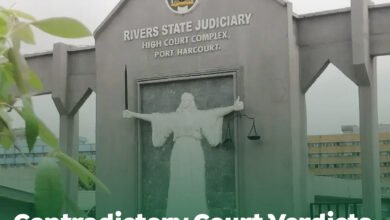
Nigeria’s oil-rich Niger Delta, the source of 75% of the country’s revenue, faces existential threats. Despite government efforts, oil theft, pipeline vandalism, artisanal refining, sea piracy, and youth militancy persist.
In June, the PUNCH reported that the Nigerian National Petroleum Company (NNPCL) deactivated 6,800 illegal refineries in two years. On July 7th and 8th, the Nigerian Navy busted further operations. Experts attribute the 400,000 barrel per day (bpd) deficit between OPEC’s quota and Nigeria’s production to these illegal activities.
To tackle this, the President Bola Tinubu administration proposed a Security Directorate within the Office of the National Security Adviser (ONSA). Mallam Nuhu Ribadu, the NSA, announced the plan at a Niger Delta Development Commission (NDDC) stakeholders summit.
“We are currently working closely with the governors of the region and the Presidency in making this a reality. When fully implemented, we anticipate that President Tinubu will likely present policy guidance that will define his security management posture for sustainable Niger Delta development,” the NSA said on Wednesday in Port Harcourt.
Ribadu acknowledged the underperformance of existing federal agencies in addressing socio-economic issues and called for legislation to address challenges hindering oil production.
“ONSA is presently engaging in consultations, collecting information and data to assist President Tinubu in prescribing policies and enacting laws to address these issues in a more holistic and coordinated way.,” Ribadu noted.
“The policy envisions a string kinetic security approach to deter perpetrators of oil theft, artisanal refining, sea piracy, and armed militancy. It also seeks to promote a value shift in an ideology supportive of national harmony and integration,” He added.
Expert Views
Security experts agree the government is on the right track. However, they caution that success hinges on details not yet addressed.
“The Directorate’s structure and functionalities are crucial,” says Dr. Miriam Tijani, a security analyst.
“Will it have clear authority over existing agencies? How will it ensure information sharing and avoid duplication of efforts?”
Dr. Tijani also highlights potential challenges: “Inter-agency rivalries and inadequate funding could cripple the Directorate. Transparency will be vital to ensure resources are used effectively.”
Other experts contend including Niger Delta indigenes in the Directorate and security operations is essential for trust-building and gathering intelligence.
The experts also acknowledge the issue of low remuneration for security personnel.
They believe some agents collaborate with criminals due to poor pay and advise that the government must improve compensation and reward structures to incentivize diligence.
Beyond Security
While the security approach is crucial, experts also urge the government to address root causes.
“Sustainable solutions require tackling poverty, lack of infrastructure, and environmental degradation in the Niger Delta,” says environmental rights activist Ms. Nancy Green. “Investment in social development projects alongside security measures can create a path towards lasting peace and prosperity.”
She added that the fight against oil theft and pipeline vandalism requires a multi-pronged approach that combines security measures with investment in the Niger Delta’s future.
“The success of the proposed Security Directorate will depend on its ability to address both immediate threats and underlying grievances.” She concluded.





